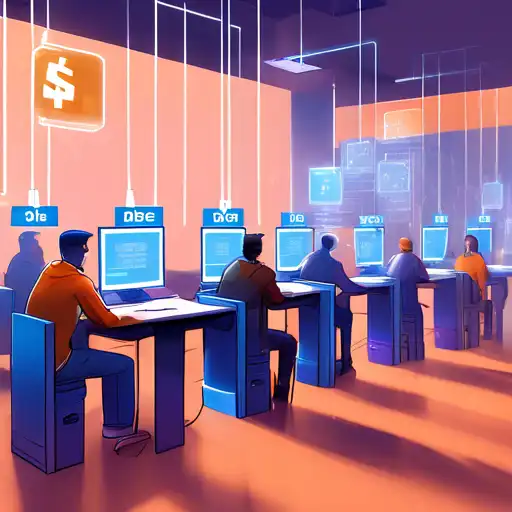The Transformative Impact of Blockchain on Voting Security
In the digital age, the integrity of voting systems has become a paramount concern worldwide. Blockchain technology, known for its robust security features, is emerging as a groundbreaking solution to enhance the security and transparency of voting processes. This article explores the pivotal role of blockchain in creating secure, tamper-proof voting systems that could redefine democracy in the 21st century.
Understanding Blockchain Technology
Blockchain is a decentralized ledger that records transactions across multiple computers in such a way that the registered transactions cannot be altered retroactively. This technology underpins cryptocurrencies like Bitcoin, but its potential applications extend far beyond, including to secure voting systems.
Why Blockchain for Voting?
The traditional voting systems are fraught with vulnerabilities, from ballot tampering to hacking electronic voting machines. Blockchain offers a solution by ensuring that each vote is encrypted and recorded as a transaction on the blockchain, making it nearly impossible to alter or delete votes without detection.
- Transparency: Every transaction on the blockchain is visible to all participants, ensuring the voting process is transparent.
- Security: The decentralized nature of blockchain makes it highly resistant to hacking and fraud.
- Accessibility: Blockchain can enable remote voting, making it easier for people to participate in elections from anywhere in the world.
Real-world Applications
Several countries and organizations have begun experimenting with blockchain-based voting systems. For instance, Estonia has implemented a blockchain system for online voting, showcasing the technology's potential to secure digital elections. Similarly, startups like Voatz are working on mobile voting platforms powered by blockchain to enhance accessibility and security.
Challenges and Considerations
Despite its potential, the adoption of blockchain in voting systems faces several challenges. These include technological literacy among voters, the digital divide, and concerns over the anonymity of voters. Addressing these issues is crucial for the widespread acceptance of blockchain-based voting systems.
The Future of Voting
As blockchain technology continues to evolve, its application in secure voting systems represents a promising avenue for enhancing democratic processes. By leveraging blockchain, we can move towards more secure, transparent, and accessible elections, ensuring the integrity of every vote cast.
For more insights into how technology is shaping the future of democracy, explore our Technology and Democracy section.
